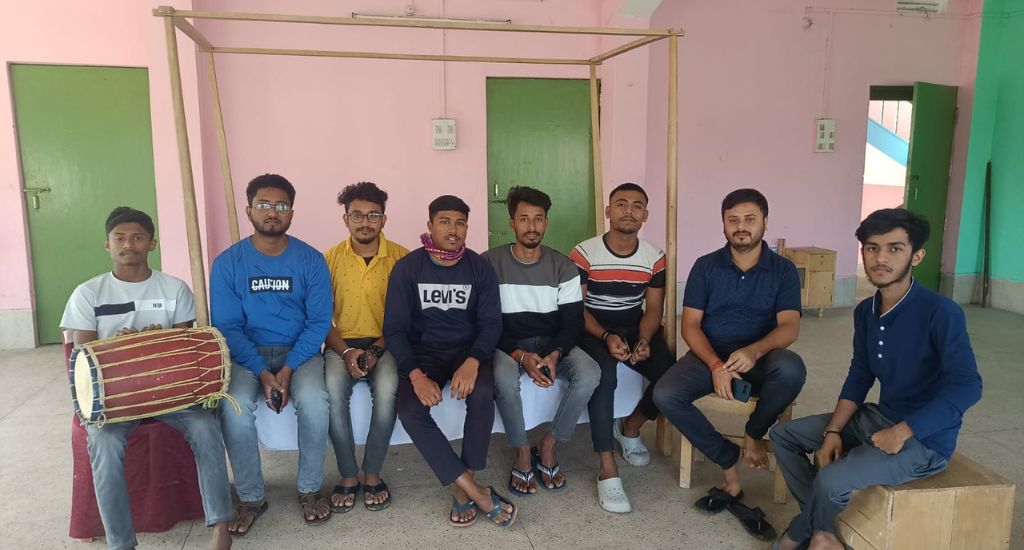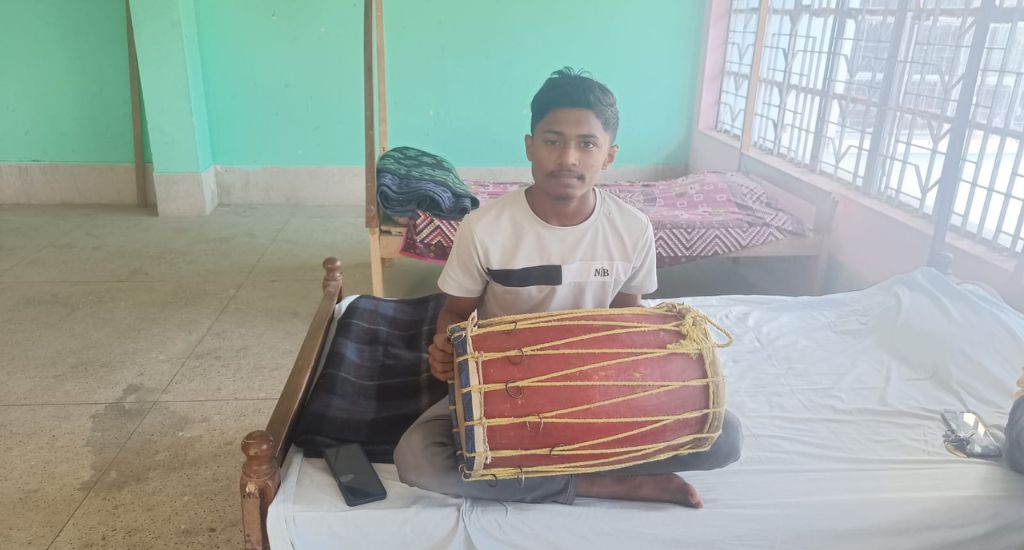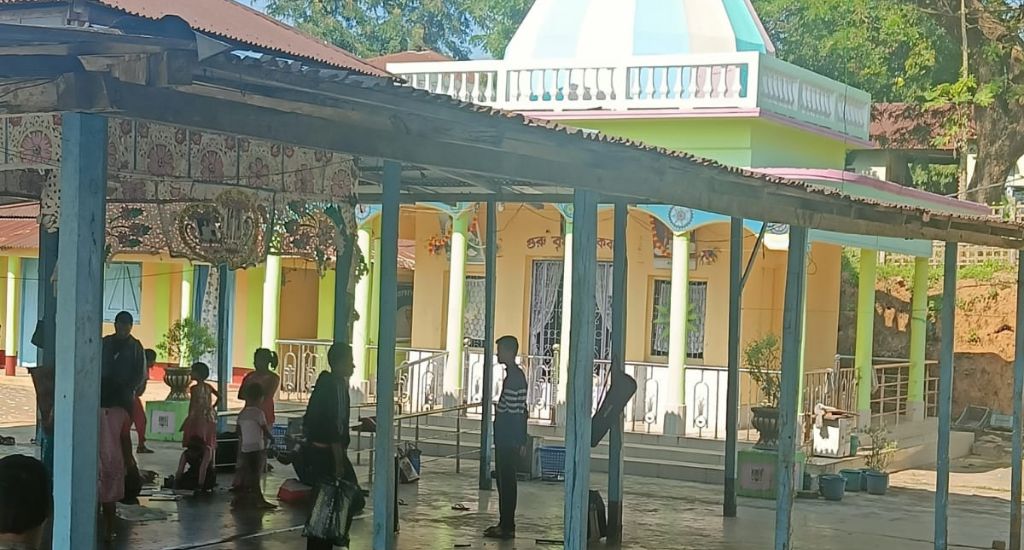
In Tripura, balladeers of snake goddess battle drug crisis with music
This music band in Jolaibari village of Tripura revives near-obsolete folk performance of Manasamangal, dedicated to snake goddess Manasa, with a message – Don’t do drugs.

This music band in Jolaibari village of Tripura revives near-obsolete folk performance of Manasamangal, dedicated to snake goddess Manasa, with a message – Don’t do drugs.
The rhythmic heartbeat of tradition echoes after 8pm in Jolaibari village, around 98km from Agartala. Sudipta Roy, a 25-year-old medicine salesman, concludes his workday and converges with his band in a chosen rendezvous — be it the community hall of the nearby Ram Thakur ashram, the village marriage hall, or a band member’s house to fight drug abuse in Tripura.
In a setting reminiscent of a baithak (seated gathering) session, the lead singer weaves verses from the Manasa Mangal Kavya into the melodies of popular Bollywood or Bengali songs. The band members dive into a chorus following the lead to the beats of the dhol, harmonium and cymbals (kartal). Folk variations from Tripura, Assam, Bengal and Bangladesh enrich the performance.
This presentation, known as Manasamangal or Padma Puran, serves as a devotional ode to the snake goddess Manasa, enshrining a ritualistic song cycle ingrained in the living traditions of Bangladesh, and eastern and northeastern India. Typically performed during the monsoon month of Sravan (mid-July to mid-August), it aligns with the time when snakes abound in riverine areas during floods.
In contemporary times, the focal point of these performances has shifted toward addressing the pressing issue of drug abuse in Tripura. The state gained notoriety in 2022 for the highest narcotics haul, a trend that continued into 2023. Tripura Police recorded 245 cases, seizing substantial quantities of cannabis, codeine-based cough syrup, tablets and heroin. Locals, including band members, attest to the resultant surge in drug consumption, primarily among intravenous users.
Roy channels his efforts into leveraging this traditional art form to dissuade his fellow villagers from succumbing to drug addiction.
Video: Melodies from Meghalaya

“I am trying my best. To tell the truth, I know people I am trying to help through the performance will go back to taking drugs, as is the case for most addicts,” Roy said, acknowledging the challenges.
The band, named Padmapuran Unique Group Jolaibari, comprises 15-20 members aged between 22 and 28 years, representing a diverse spectrum, including students, government servants, small business owners, rubber farmers and salespersons.
The group appended “unique” to their name to underscore their innovative approach, weaving awareness against social maladies including drug abuse in Tripura into their performances. Their repertoire blends traditional and modern songs, creating a resonant message for the modern youth.
The band was born amid the Covid-19 crisis in 2020.
“It just happened,” Debjit Dutta, a band member and employee at a private courier service, recalled. “I met four of my friends at a birthday party where they were organising a Manasamangal and I joined the chorus… We decided to do such rehearsals among friends. Today at my place, next day at another friend’s place, and then we took it to the level of a performance group.”
As their performances transitioned from private spaces to public events like puja celebrations and cultural festivals, the band witnessed a transformative impact on the community. Former drug users became regular attendees, immersing themselves in the melodies, singing and dancing as their resolve to fight against drug abuse in Tripura grows stronger.
“Why use drugs when you can enjoy music? Singing is the best form of medicine,” Dutta said. “We even had 50-60 requests from former users to become a part of our band. We are testing them on their ability to play instruments.”
The band is gaining traction through live sessions broadcast on social media platforms. Two members managing the group’s social media presence have initiated Facebook live sessions across various districts in Tripura. With 320 subscribers and 66 videos on their YouTube channel, the band has garnered followers from Assam, Tripura, Bangladesh and beyond.
Watch: Alive with the sound of music

Remarkably, despite offers to cover travel and accommodation costs, the band remains committed to not charging any fees for their performances. When instruments require repairs, working members pool in their savings to sustain rehearsals and scheduled performances.
“We are proud that since our initiative, several such groups have mushroomed in several places in Tripura, and that too in this age when people are too busy to carry forward this tradition,” said another band member Shanai Baidya, who is currently pursuing his BEd.
Expressing hope for societal change, Baidya added: “We have seen many talented people derailing their life by taking drugs. And they have asked to be included in our group. The Tripura government has made sports and physical exercise a primary medium to tackle drug abuse through Nasha Mukt Bharat Abhiyan. Why not use music for the same purpose?”
Also Read: Music band rings in new dawn for ex-prisoners
The lead image at the top shows some of the members of the Padmapuran Unique Group Jolaibari music band. (Photo by Aatrayee Dhar)